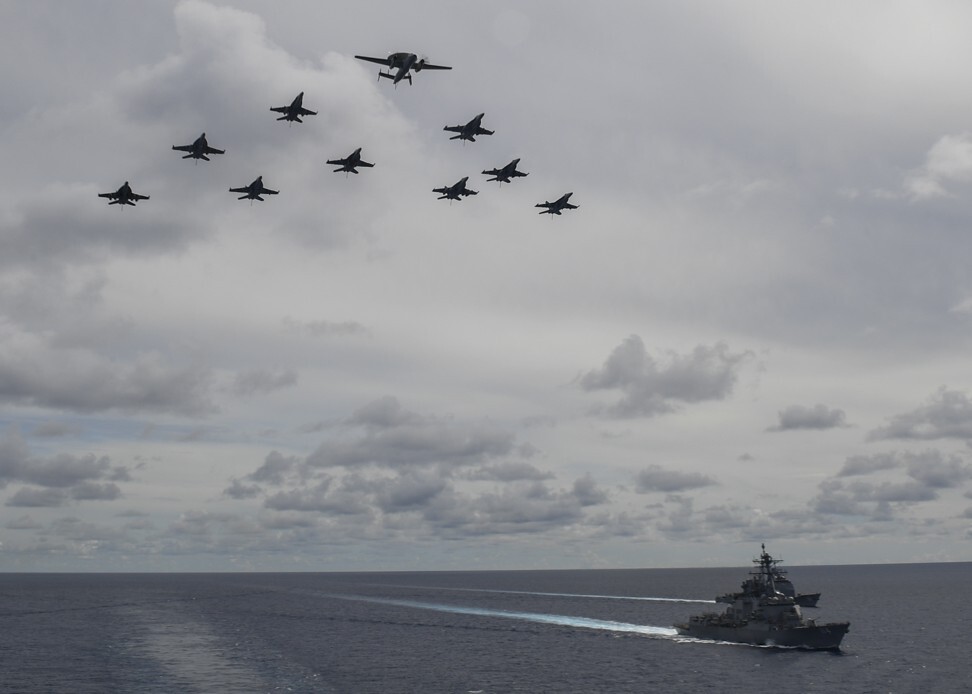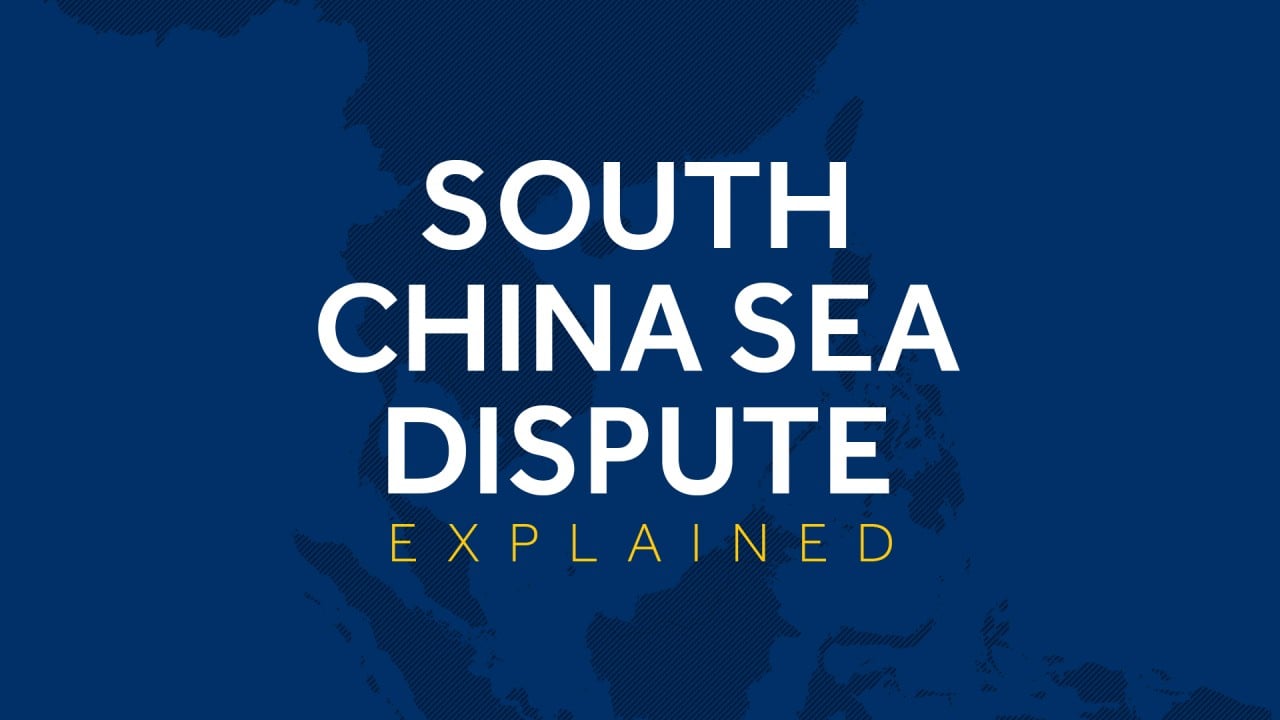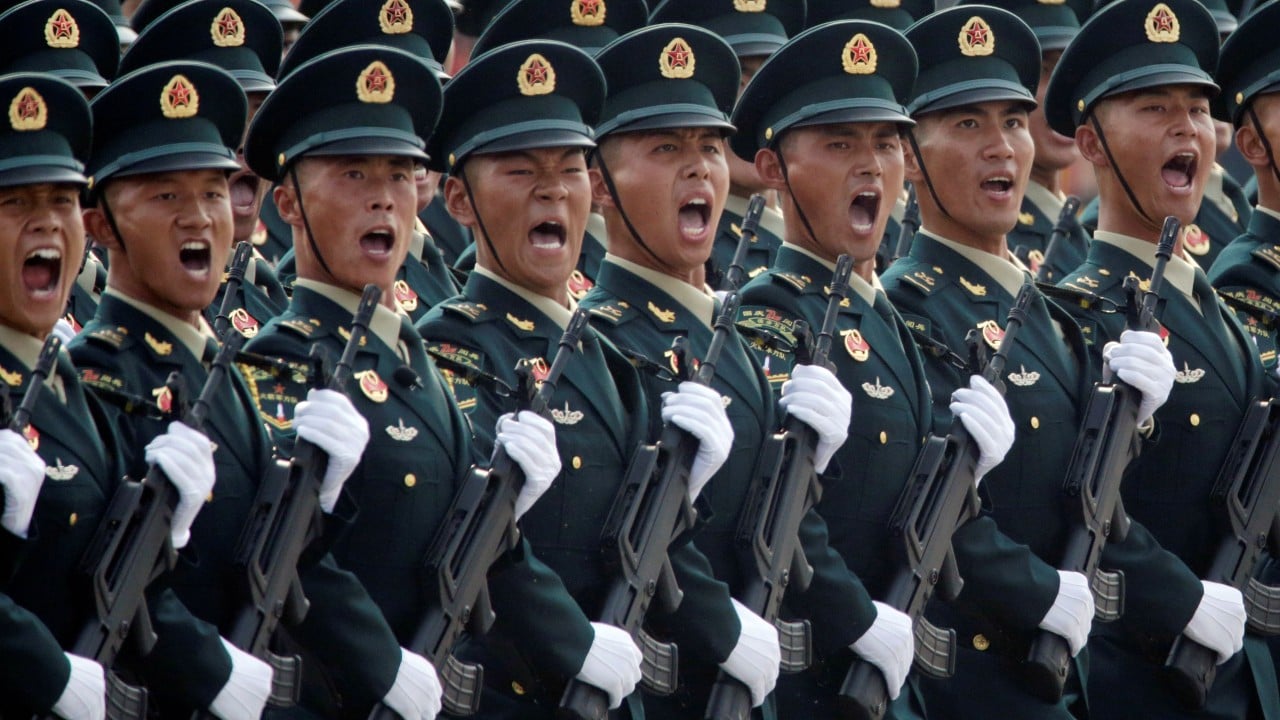
Beijing blasts US over ‘provocative military acts’ in the South China Sea
- Defence ministry claims United States ‘carried out navigational hegemony’ by repeatedly sending warships to the region
- US aircraft carrier groups conducted drills in the area last week while Chinese navy held its own exercises near contested Paracel Islands
In a statement on Thursday, the ministry claimed the United States had “carried out navigational hegemony” through repeated deployments of warships to the region, saying Washington was the biggest driver of militarisation in the strategic waterway.
“We hope the US will examine itself and stop its provocative military acts in the South China Sea, stop smearing and blaming the Chinese side for no reason, stop trying to drive a wedge between countries in the region, and stop creating this tense situation,” a spokesperson said on the ministry’s website.
China’s military said it had engaged in routine training exercises from July 1 to July 5 near the Paracel Islands, known as the Xisha Islands in Chinese, that are claimed by China, Vietnam and Taiwan. The US Navy announced on July 4 that it had deployed two aircraft carrier groups, the USS Nimitz and USS Ronald Reagan, to conduct tactical air defence exercises in the South China Sea “in support of a free and open Indo-Pacific”.


03:23
The South China Sea dispute explained
The US Department of Defence said in a July 2 statement that the Chinese military exercises around the Paracel Islands had violated China’s international commitments to avoid actions that would “complicate or escalate disputes” in the region.
“The military exercises are the latest in a long string of [Chinese] actions to assert unlawful maritime claims and disadvantage its Southeast Asian neighbours in the South China Sea,” the statement read. “[These] actions stand in contrast to its pledge to not militarise the South China Sea and the United States’ vision of a free and open Indo-Pacific region.”
Operation Bashi Channel: the next flashpoint in the China-US military rivalry
China’s defence ministry rebuffed the US statement on Thursday, describing its early July exercises in the area as “not targeted at any specific country or objective”.
“The intent was to effectively elevate the Chinese navy’s maritime defensive capabilities, resolutely defend the safety of our country’s sovereignty, and to safeguard regional peace and stability,” the spokesperson said. “The US Department of Defence is disregarding facts, reversing black and white, inciting regional tensions, and seeking its own gain in all this.”

04:12
Are Xi Jinping’s China and Donald Trump’s US destined for armed conflict?
Asean has also taken a stronger line on the South China Sea disputes, issuing a statement at an annual regional summit in June that analysts said signalled a firmer stand against Beijing’s vast claims to the region, with an emphasis on the 1982 United Nations Convention on the Law of the Sea as the framework for activities there.
Vietnam’s foreign ministry said on July 2 it had lodged a diplomatic protest with China over its exercises by the Paracel Islands, and “demanded the Chinese side not to repeat similar violations in the future”. Spokeswoman Le Thi Thu Hang told reporters that the drills had violated Vietnam’s sovereignty and were “not conducive” to ongoing discussions for a maritime code of conduct.

